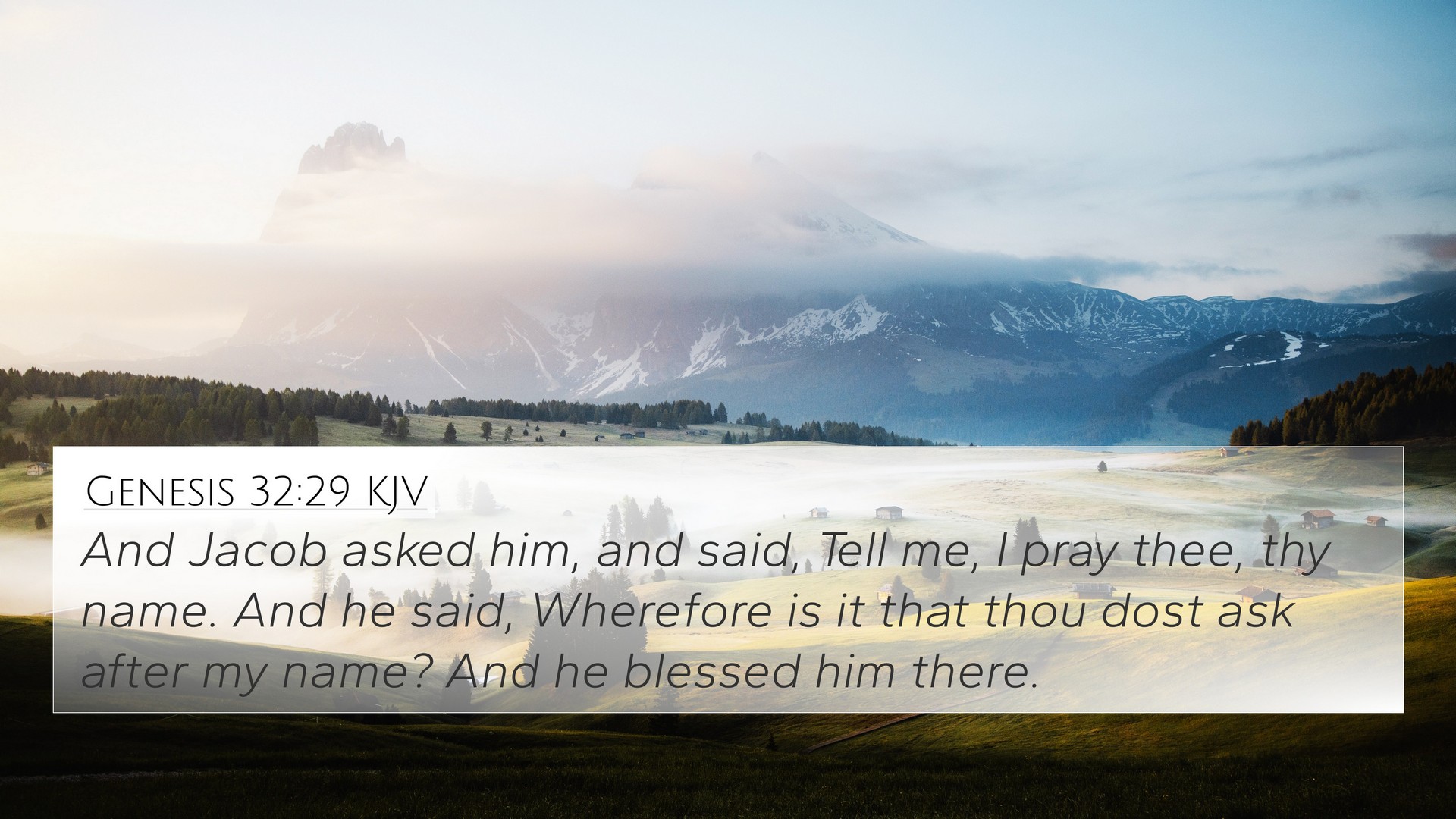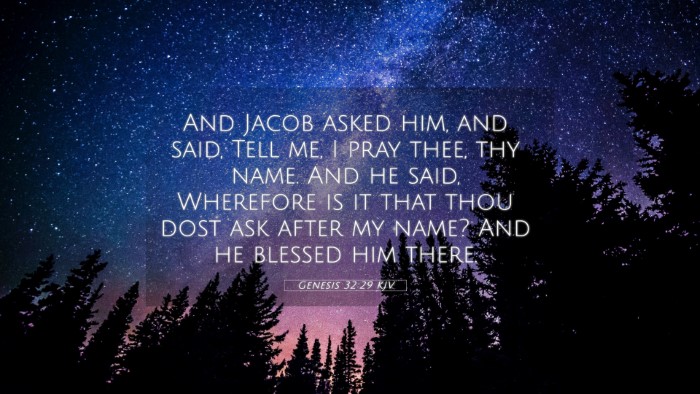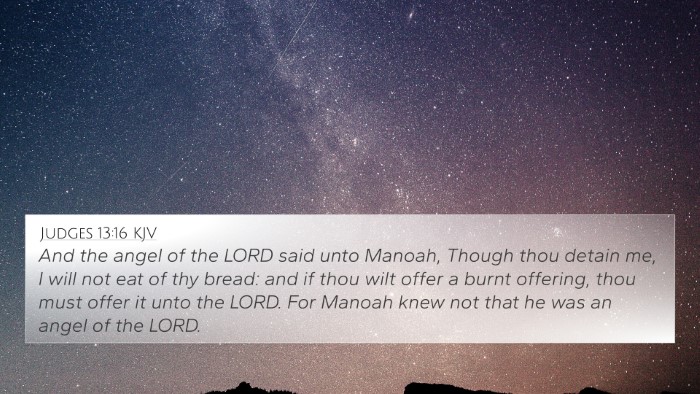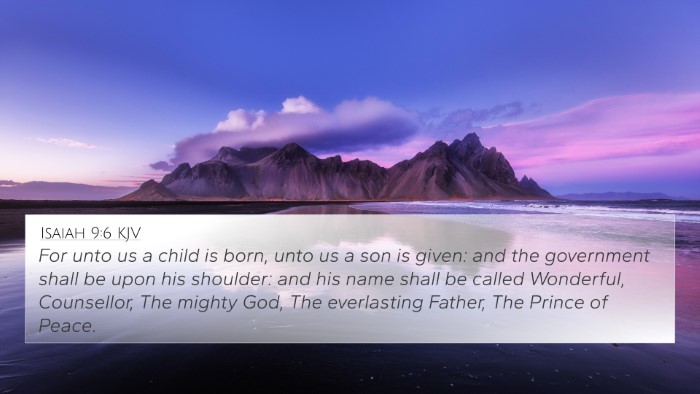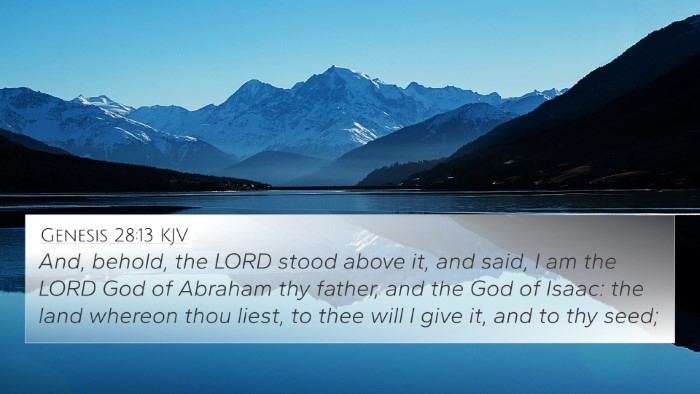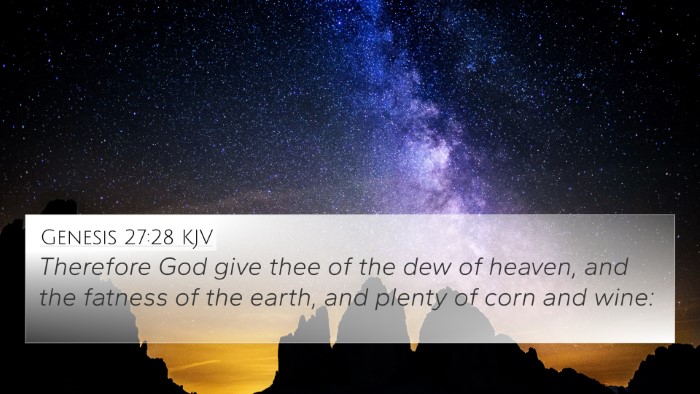Meaning and Interpretation of Genesis 32:29
In Genesis 32:29, we find a profound moment in the story of Jacob as he wrestles with a divine being. The verse reads:
"And Jacob asked him, saying, 'Tell me, I pray thee, thy name.' And he said, 'Wherefore is it that thou dost ask after my name?' And he blessed him there."
This encounter holds deep theological significance that reflects themes of transformation, identity, and blessing. Below, we summarize insights from various public domain commentaries, including those by Matthew Henry, Albert Barnes, and Adam Clarke.
Summary and Insights
-
Divine Encounter:
Jacob's struggle symbolizes the human experience of wrestling with God’s purpose and will. Henry emphasizes that this is not just a physical battle but a spiritual one, representing Jacob’s internal struggles.
-
Seeking Identity:
The question Jacob poses, asking the name of the divine being, illustrates a quest for identity and understanding. Barnes notes that asking for the name is a request for revelation, indicative of our desire to know God more intimately.
-
The Lord’s Response:
The response of the divine being, questioning Jacob's inquiry, indicates that God’s nature and existence surpass human comprehension. Clarke points out that this moment is crucial in demonstrating God’s transcendent nature.
-
Blessing through Struggle:
After the wrestling match, the blessing Jacob receives signals a transformation in his identity, suggesting that struggles often lead to spiritual blessings. Henry highlights this as a key element in understanding personal growth through trials.
-
Historical Context:
This event occurs before Jacob's reunion with Esau, heightening the tension and anticipation surrounding their confrontation. Barnes notes that the context helps illuminate Jacob's emotional state and the need for divine assurance.
-
Transformation of Jacob:
This encounter marks a turning point for Jacob from a self-reliant man to one who acknowledges his dependence on God. Clarke discusses this transformation, emphasizing the importance of reliance on divine grace.
-
The Significance of Names:
In biblical tradition, names hold deep significance, often revealing the character or the destiny of the individual. The divine being refrains from revealing a personal name, which can signify the mystery of God and His infinite nature.
-
Application to Believers:
This verse challenges believers to engage in their own spiritual struggles with God, reflecting on how those struggles transform their understanding of themselves and their relationship with Him.
Cross-References to Genesis 32:29
To enhance understanding, here are several relevant Bible verse cross-references:
- Hosea 12:3-4: Discusses Jacob's wrestling and highlights his struggle with God.
- Isaiah 45:3: Offers insight into the riches found in knowing God's true nature.
- James 1:12: Speaks about the blessedness that comes from perseverance under trial.
- Exodus 3:14: God reveals His name to Moses, further illustrating the theme of divine revelation.
- Romans 8:28: Reminds believers that struggles are used for good in the lives of those who love God.
- Philippians 3:14: Encourages believers to press forward towards the goal, akin to Jacob’s transformative journey.
- 1 Peter 5:10: Discusses the perfecting and establishing work that God performs after we have suffered a little while.
- Genesis 35:10: Reference to Jacob being renamed Israel and the transformation that occurs.
- Genesis 28:12-15: Jacob’s vision at Bethel foreshadows his future relationship with God.
- Psalm 119:67: Reflects on how affliction can lead one to learn God's statutes.
Conclusion
Genesis 32:29 captures a pivotal moment in Jacob's life that serves to illustrate broader themes of struggle, identity, and transformation in the life of a believer. By engaging with this verse and its cross-references, individuals can uncover deeper spiritual truths and encouragement relevant to their own lives.
